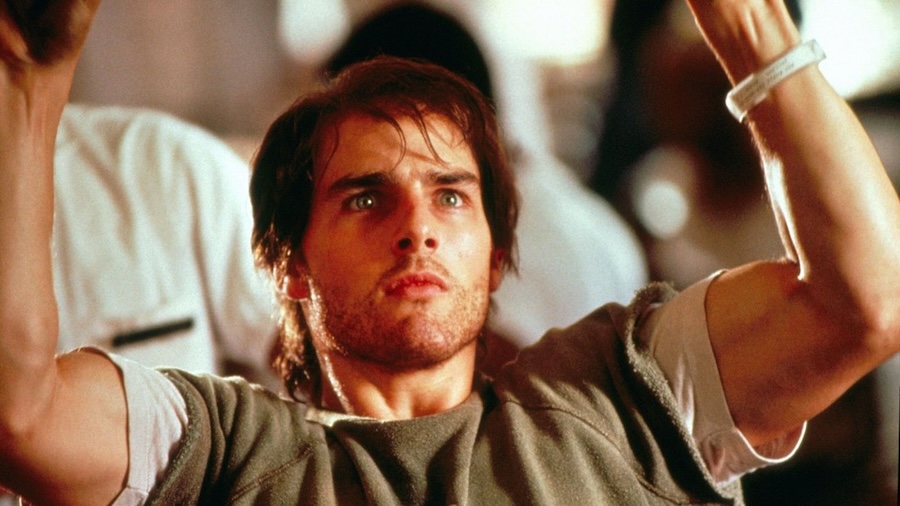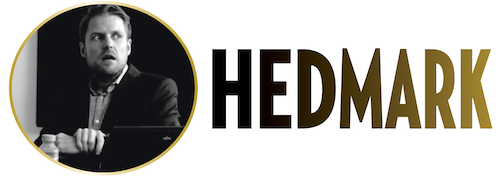
A STORY OF INNOCENCE LOST AND COURAGE FOUND.

It took a while for me to realize that the date I revisited this film on Bluray was indeed July 4th. This tale from the Vietnam War is another example of how much Oliver Stone loves his country. Along with World Trade Center (2006), it celebrates heroes. World Trade Center saluted the people who put their lives at risk to save others during 9/11; this one gives a shout-out to those men who went to Vietnam to fight for their country and then came back to fight for it once again in the streets, after realizing the folly of the war. That’s patriotism.
A real sense of patriotism and duty
Ron Kovic (Tom Cruise) is born on the Fourth of July in Massapequa, New York. Like any other kid he spends part of his childhood playing war games in the woods, but in Ron’s case the interest runs deeper and stays with him through high school. He has a real sense of patriotism and duty, instilled in him mostly by his God-fearing mother (Caroline Kava). When two Marine Corps officers show up at school one day to talk about what they do, Ron is all ears. He decides to enlist and go to Vietnam. On his second tour in 1967, he’s a sergeant and takes part in an attack on a Vietnamese village that leaves women and children dead; he also accidentally kills a younger PFC.
During a subsequent mission, Ron is critically wounded and ends up in a wheelchair, paralyzed from the waist down. Bitter and horrified of what he’s seen and done, he returns home…
Digs deep under the skin of the American psyche
There’s a moment during the director’s commentary on the Bluray disc that Stone talks about how there isn’t a war after Vietnam that the American public hasn’t supported, in spite of what they learned after that. It’s as if we need war now and again; it’s just in our nature, and we never learn from it. This first-rate adaptation of Kovic’s experiences from Vietnam is painful to watch as it digs deep under the skin of the American psyche and lays blame on Christian conservatism (as represented by Ron’s mother) and the political leadership of the country.
The latter part is represented by Nixon and all those hateful, screaming Republicans at the 1972 GOP convention near the end of the film; Stone (and Kovic it would seem) avoids laying much blame on Democratic leaders, even though they certainly were to blame as well. The director, along with cinematographer Robert Richardson and composer John Williams, deliberately creates a nostalgic and patriotic image of small-town America and balances it against the horrors of Vietnam and police treatment of antiwar protesters. Editors David Brenner and Joe Hutshing help create an intensity in all of it, even though Stone waited until JFK (1991) to go all in and create that ultimate masterpiece of manipulation. He often chooses instead to slow down and let his cast work, with all the visual fireworks in the background.
Tom Cruise is just as believable as a wide-eyed teenager as the disillusioned vet who has to lose himself in the desert.
Cruise gives his first dramatic tour-de-force performance (after some practice in Rain Man (1988)); he’s just as believable as a wide-eyed teenager as the disillusioned vet who has to lose himself in the desert before gaining the strength to become a leading antiwar activist.
Stone tells the story with incredible skill (not just technically, but narratively) and effortlessly takes us from childhood to Vietnam to early 1970s turmoil in America. It can be viewed as a follow-up to Platoon (1986), his first film about Vietnam, which was based on his own experiences. It took a lot of time for Ron Kovic to see his story on screen, but it was worth the wait, considering the firsthand experience that went into the directing.
Born on the Fourth of July 1989-U.S. 144 min. Color. Widescreen. Directed by Oliver Stone. Screenplay: Oliver Stone, Ron Kovic. Book: Ron Kovic. Cinematography: Robert Richardson. Music: John Williams. Editing: David Brenner, Joe Hutshing. Cast: Tom Cruise (Ron Kovic), Willem Dafoe (Charlie), Raymond J. Barry (Eli Kovic), Caroline Kava, Kyra Sedgwick, Bryan Larkin, Stephen Baldwin, Lili Taylor, Michael Wincott, Wayne Knight, Tom Berenger, Jason Gedrick, Ed Lauter, Tom Sizemore, John C. McGinley.
Trivia: Co-produced by Stone. The third part of this trilogy is Heaven & Earth (1993). The book was originally going to be filmed in the 1970s, with Al Pacino in the lead and William Friedkin directing; when Stone landed the job as director, he considered Nicolas Cage, Charlie Sheen and Sean Penn for the lead. Kovic’s story also inspired Coming Home (1978).
Oscars: Best Director, Film Editing. Golden Globes: Best Motion Picture (Drama), Director, Actor (Cruise), Screenplay.
Last word: “[My moral outlook as a filmmaker] would stem from [the Vietnam War] because it was an eye-opener but it didn’t necessarily hit me right away. Platoon would be more of the character I was, just shaken up. Born on the Fourth of July would be the character I was a few years later. I became more radical because I learned more and my perception of what we were doing in the world was changing.” (Stone, Total Film)
